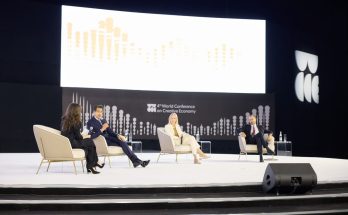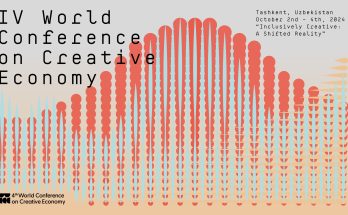 Centuries-old spiritual connections came alive during India’s Prime Minister Narendra Modi’s visit to Japan, as ancient civilisational linkages were reaffirmed by the message of harmony and non-violence.
Centuries-old spiritual connections came alive during India’s Prime Minister Narendra Modi’s visit to Japan, as ancient civilisational linkages were reaffirmed by the message of harmony and non-violence.
Non-Violence in India’s DNA
While trade and geo-strategy were indeed the focus of the visit, the trip brought to the fore deeper spiritual connections that provides emotive depth to India-Japan relations. Buddhism and its message of peace, which spread from the Indian subcontinent to the shores of Japan, were conjured up by Modi, who reminded his Japanese audience that non-violence was ingrained in India’s DNA.
“India won its freedom through non-violent means. For thousands of years, India has believed in the principle of Vasudhaiva Kutumbakam (the whole world is our family),” adding “when we consider the whole world as our family, how can we even think of doing anything that would harm or hurt anyone?”
Gifting Gita
These connections of spirituality were also emphasised after Modi gifted the Bhagvad Gita to Japan’s Emperor Akihito during his audience with the octogenarian monarch at the Imperial Palace in Tokyo on September 2.
Speaking about his gift, Modi said, “I don’t think that I have anything more to give and the world also does not have anything more to get than this.”
During his Japan tour, the Indian prime minister had an opportunity to witness first-hand the relics of ancient bonds that unite Asia’s two vibrant democracies. Spiritually humbled by the magnificence of the prominent ancient Buddhist temples in Kyoto – Toji and Kinkakuji – Modi silently offered prayers and meditated in the beautiful temple complex. He even engaged the Chief Monk Yasu Nagamori in a conversation, who informed him that the design of the building was inspired by trinity of Brahma, Vishnu, Mahesh of Hindu philosophy.
Throughout his trip, Modi spoke about his fascination with how Japan has managed to blend the modern with the ancient, the spiritual with the practical, without compromising on either – a blueprint for his vision of developing India.
The prime minister, who visited Japan as a chief minister of Gujarat, also spoke glowingly of how Swami Vivekanand was impressed by the love the Japanese have for their community and nation.
Memories of Swami Vivekananda were evoked once more when Modi inaugurated the Vivekananda Cultural Centre on September 2 at the Indian Embassy in Tokyo.
As economic and strategic relations grow between the two Asian powers, it will the rekindling of ancient bonds in newer avatars that will define this partnership in the future. Prime Minister Modi has indeed ensured that India-Japan relations a have a “significance far above any international treaties or processes”.
Author Profile
- India Writes Network (www.indiawrites.org) is an emerging think tank and a media-publishing company focused on international affairs & the India Story. Centre for Global India Insights is the research arm of India Writes Network. To subscribe to India and the World, write to editor@indiawrites.org. A venture of TGII Media Private Limited, a leading media, publishing and consultancy company, IWN has carved a niche for balanced and exhaustive reporting and analysis of international affairs. Eminent personalities, politicians, diplomats, authors, strategy gurus and news-makers have contributed to India Writes Network, as also “India and the World,” a magazine focused on global affairs.
Latest entries
 DiplomacyJanuary 5, 2026India walks diplomatic tightrope over US operation in Venezuela
DiplomacyJanuary 5, 2026India walks diplomatic tightrope over US operation in Venezuela India and the WorldNovember 26, 2025G20@20: Africa’s Moment – The Once and Future World Order
India and the WorldNovember 26, 2025G20@20: Africa’s Moment – The Once and Future World Order DiplomacyOctober 4, 2025UNGA Resolution 2758 Must Not Be Distorted, One-China Principle Brooks No Challenge
DiplomacyOctober 4, 2025UNGA Resolution 2758 Must Not Be Distorted, One-China Principle Brooks No Challenge India and the WorldJuly 26, 2025MPs, diplomats laud Operation Sindoor, call for national unity to combat Pakistan-sponsored terror
India and the WorldJuly 26, 2025MPs, diplomats laud Operation Sindoor, call for national unity to combat Pakistan-sponsored terror







